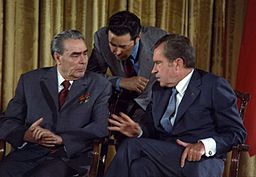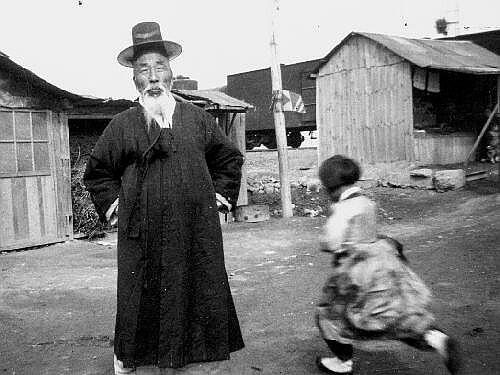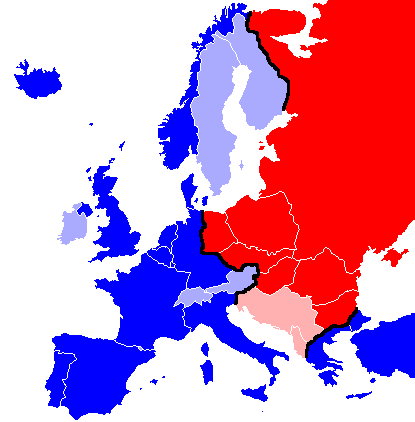The most intriguing moment of the Scopes trial, in which Tennessee school teacher John T. Scopes was tried for teaching evolutionary theory to his students, no doubt occurred on its seventh day. Having been denied the opportunity to question scientists about the validity of evolutionary theory, the defense called prosecuting attorney William Jennings Bryan as a witness. Bryan, a former three-time presidential nominee and a well-known lay religious speaker, was to be questioned on the Bible. The Tennessee statute specifically prohibited public schools from teaching an account of human evolution that contradicted the Biblical account of creation. The defense hoped, in the first place, to show that what Thomas Scopes taught in his biology classroom was not, in fact, contradictory to the Bible. In the second place, they also wanted to show that the Bible is filled with events that were not scientific and thus its creation account should not be treated as such.
Reporters and spectators alike salivated at the prospect of the country’s most famous trial lawyer, defense attorney Clarence Darrow, questioning its most famous political figure and lay preacher. As if this weren’t enough, Bryan’s agreement hinged on his being able to question Darrow and the other defense attorneys in return (see the Scopes Trial Transcript). Even the setting proved unorthodox. Anticipating that closing arguments would take place during the session, and fearing that the crowds would be too great for the courtroom floor to support, presiding judge John T. Raulston had moved the trial to the yard outside the courthouse. Thus, he guaranteed that one of the most famous events in American legal history would have the largest possible audience (Larson, 2006).
Darrow’s questioning involved “the well-worn questions of the village skeptic” (Larson, 2006, p. 187). In so doing, Darrow often pinned Bryan into a corner where he was forced to choose between Biblical literalism (a position not entirely in keeping with Bryan’s own beliefs), a scientific account of the phenomena in question (which might run counter to the prosecution’s case), and admitting his own ignorance. As a result, most contemporary accounts gave the victory to Darrow and the defense (Larson, 2006; Kazin, 2008; and Farrell, 2011). More recently, in 1999 evolutionary biologist Stephen Jay Gould suggested that while “Darrow may have come out slightly ahead… Bryan parried fairly well, and certainly did not embarrass himself” (Gould; p. 137). But even this latter, more generous, view still gives the Darrow the win. What had happened to Bryan on the witness stand that led to his defeat?
The Rusty Attorney
The first and easiest explanation is that, although Bryan had practiced law for several years, he had not been in a courtroom for decades. As a politician and as a popular speaker, he was without peer when giving prepared speeches. He was no match, however, for an aggressive and fast-thinking trial attorney like Darrow. When he needed to think quickly and off the top of his head, Bryan was generally ill equipped to do so.
Bryan Was Not A Theologian
A second explanation emerges with a close reading of the transcript. Bryan had truly studied the Bible, but he did so as a member of the faithful. His reading was designed to bring him closer to God and as such, his Christian metaphysics runs through his testimony. This metaphysics allows him to account for miraculous events in ways that Darrow, with his agnostic and skeptical point of view, would dismiss as nonsense. This is clearly evident in Bryan’s explanation of the Jonah story about which he said “I believe in a God who can make a whale and can make a man and make both do what he pleases,” and later “it is just as easy to believe the miracle of Jonah as any other miracle” (Scopes Trial Transcript). For Bryan, God intercedes in human events, and while we should be awestruck by His power and His willingness to do so, we should not be surprised by it or question it. But this point of view created its own problems. As a religious speaker, Bryan was most interested in the greatest of miracles: the Creation (which set humanity above all other creatures) and the Resurrection of Christ (which gave humanity its hope beyond the grave). Unfortunately for him, those miracles were not part of Darrow’s questioning. Thus, when Bryan placed all biblical miracles on the same plane, “laudable simple faith became laughable crude belief” (Larson, 2006, p. 189).
While such a reading of scripture may be an admirable quality in a man of God, it is clear that Bryan never studied scripture in the manner of a theologian or Biblical scholar. He was, therefore, ill prepared to address the inconsistencies it contained. He knew large parts by heart and tried to live by its precepts, but he never considered its contradictions. For instance when asked by Darrow where Cain found his wife (if in the beginning there was only Adam, Eve, Cain and Abel), Bryan could only answer that it “never bothered me” and “I never tried to find out” (Scopes Trial Transcript).
He Was Not A Scientist Either
This lack of inquisitiveness led to a third explanation for his failure: If Bryan was no theologian, he was still less a scientist. He was interested in the potential science and technology held for humankind, but did not view the world through a scientific lens. In response to many of Darrow’s questions about the Bible (e.g. the age of the earth), Bryan frequently responded with statements such as “I don’t know,” “I couldn’t say,” and “I wouldn’t attempt to tell you that” (Scopes Trial Transcript). When he was willing to make a definitive statement on an issue, he typically did so in one of two self-destructive ways. First, he hand-picked research and books that supported his own views while ignoring those that contradicted them. For instance, his reference to George M. Price, a creationist geologist, caused Darrow to exclaim “he has quoted a man that every scientist in this country knows is a mountebank and a pretender and not a geologist at all” (Scopes Trial Transcript). Second, he would respond in ways that played directly into Darrow’s hands. When Bryan conceded, for instance, that the “days” mentioned in the Genesis creation account were not necessarily 24-hour days, and that “it would be just as easy for the kind of God we believe in to make the earth in six days as in six years or in 600,000,000 years” (Scopes Trial Transcript), he was interpreting the Bible. This would prove fatal. For if the biblical account can be subject to interpretation, then one must question whether John Scopes’ biology lesson actually “den(ied) the story of the Divine Creation of man as taught in the Bible?” (Tennessee House Bill 185).
All For Naught?
For Bryan the trouble didn’t stop there as insult was soon added to injury. When the trial recessed for the day, Chief Prosecutor, Tom Stewart, seeing his deftly managed case unraveling before his eyes, informed Bryan that should he insist on continuing with his testimony, the prosecution would drop the charges against Scopes (Larson, 2006). In the end, perhaps, none of it mattered. The next day, Judge Raulston struck Bryan’s testimony from the record, ruling that it could shed no light on the particulars of the Scopes case. As a result, Bryan was denied his chance to cross-examine the defense attorneys. Then the defense rested its case and asked for a guilty verdict so that they could begin the appeal process. By doing so, they robbed Bryan of the chance to make his closing statement. It is almost certain that, with a script to follow and a chance to prepare, he would have fared much better than he did on the witness stand. A few days after the trial, Bryan died in his sleep. Sometime later, the guilty verdict would be overturned due to a technicality.
By testifying, Bryan had hoped to show the world that he was “trying to protect the word of God against the greatest atheist or agnostic in the United States” and that he was “not afraid to get on the stand in front of him and let him do his worst” (Scopes Trial Transcript). He was, no doubt, courageous for doing so. Courage alone, however, could not win this day. He was over confident in his knowledge and his ability. As such, he was also clearly overmatched. Like David of old, Bryan brought his sling and stones into battle. But this time, Goliath was waiting with a Kalashnikov.
Did you enjoy this article? If so, tell the world! Tweet about it, like it, or share it by clicking on one of the buttons below…
















